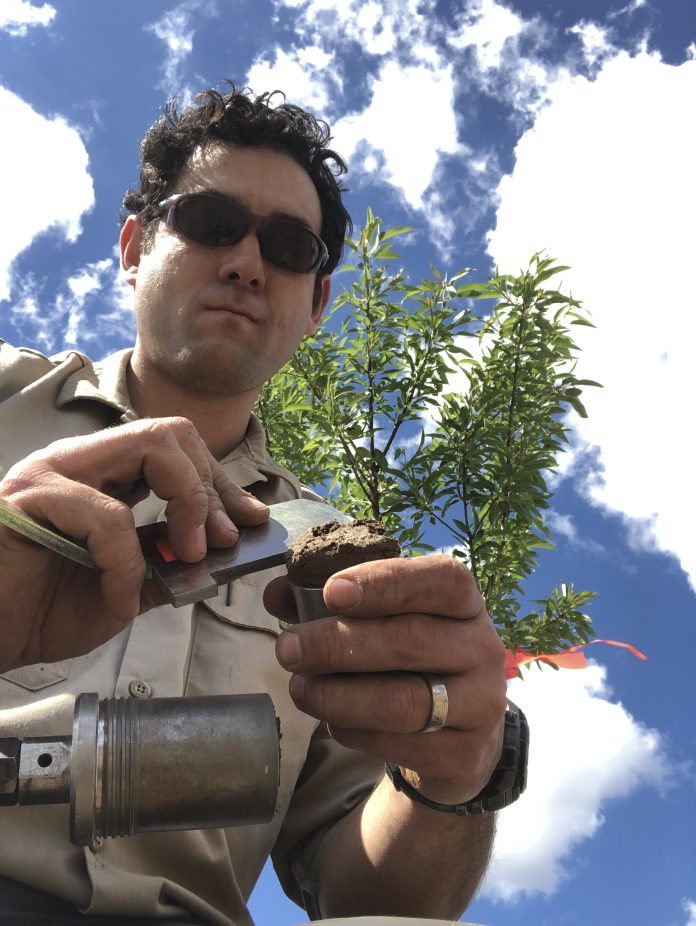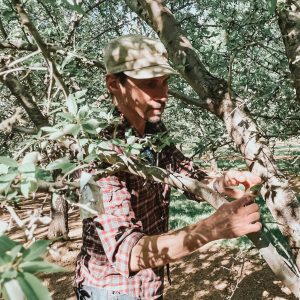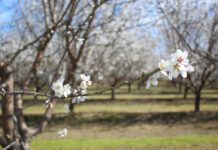
The 2021-22 fiscal year has a been a busy one for UC Cooperative Extension.
This past year, UC ANR has begun recruiting 84 new UCCE advisors around the state in areas like integrated pest management, urban agriculture, 4-H and even fire science. Funding has also been committed for 23 new specialist positions. The hirings are a high note for California ag as UCCE had previously suffered from cuts in recent decades.
“Until we got this new influx in funding, Cooperative Extension had been shrinking steadily for over 20 years,” said Glenda Humiston, vice president at UC ANR. “This new funding, which was led by Senator John Laird in conjunction with the state’s agriculture industry, provides us with enough Cooperative Extension positions to get our research footprint back to where we were 20 years ago.”
Important for the tree nut industry, multiple advisors on the list of new additions will be dealing with tree nuts up and down the Sacramento and San Joaquin Valleys. Two advisors, Cameron Zuber in Merced and Madera counties and Curt Pierce in Glenn, Tehama, Colusa and Shasta counties, have already assumed their positions and are working with tree nut growers in their respective regions to find out more about their needs.
Cameron Zuber
Cameron Zuber began work as orchard crops advisor for Merced and Madera counties on June 27. For Merced County, he covers stone fruit, walnuts and almonds, not including pistachios and figs, as well as other deciduous fruit trees like pomegranates and cherries. For Madera County, he will work with walnuts.
Zuber joined UCCE in 2016 as a staff researcher in Merced County. Specifically with orchard crops, he has worked on fumigants and other soil pest controls, rootstocks and scion varietals, cultural practices relating to tree spacing and whole orchard recycling. He has also studied flood irrigation for groundwater recharge, irrigation and water management and soil, water and air interactions.
Although he’s only been on the job for a few months, Zuber has had many issues thrown at him including some of the most concerning ones for growers today. Not surprisingly, many tree nut growers are coming to him for help with the current state of water in their areas.
“That might just be due to some concerns as it relates to SGMA and other drought-related items,” Zuber said, “and it’s not just the amount of water; it’s also the water quality.
“There’s areas of the counties that deal with less-than-ideal water situations as it pertains to the crops I work on,” he continued. “It’s both an amount of water that they can have and how much they can use (and how to effectively use that), but also the quality of that water and certain management that would be attributed.”
Zuber spoke generally because every grower he meets has a different water quality situation, reiterating that water is almost always the first thing they’ll ask about. One water quality issue that he has seen a pattern with from multiple growers’ accounts, however, is salinity’s effect on irrigation water.
“It’s both a function of the water having those qualities but also the soil being able to hold that and [saline water] just building up in the soil,” Zuber said.
Zuber said he’s enjoying his new position and finds the job fulfilling, noting that for him, it’s all about personalized service to each grower he encounters. “I’ve always been happy when I’m trying to find practical solutions to problems.”

Curt Pierce
Curt Pierce was named irrigation and water resources advisor for Glenn, Tehama, Colusa and Shasta counties in October 2021. Pierce has been covering precision irrigation and drought mitigation strategies in tree crops in these areas. He is also interested in root dynamics under different irrigation scenarios and hope to do more research in that area.
In his region, Pierce said there’s a lot of uncertainty, more than usual, surrounding growing permanent crops. “Crop prices are down, input prices are up and water supplies are all but assured,” he said. “This year was made even more difficult with the freeze events coming early last year and late this past spring. Many growers were set back pretty heavy from those.”
Currently, Pierce is involved in two trials with UC Davis’ Ken Shackel, UCCE’s Luke Milliron and others studying the effects of delaying start-of-irrigation in the spring for both walnut and almond. “The walnut trial in particular has shown promise for holding off on irrigations until the end of April or even early May to when the tree’s water status indicated a need for that water,” he said. “That has the potential to result in significantly lowering overall seasonal water applied for that crop.”
Speaking further on his interest in root dynamics research, Pierce said he’s looking for funding to get the necessary equipment, adding that this is an area that has been particularly difficult to study in years past. “There are a couple of projects there that I would very much like to pursue, both for tree and pasture crops, that would go a long way in helping us inform best practices when water is more limited,” he said.
“We also might want to take a fresh look at some of the regulated deficit irrigation studies that were done in years past and consider new research using plant-based sensing as a baseline from which to reduce applied water now that that technology has matured and become more accessible to producers,” he added.
Overall, Pierce is happy to be out in the field interacting with growers on a regular basis. “It’s the job I decided to go back to school for and I am beyond fortunate to be in my position. I appreciate every opportunity I have to get out and visit with folks and work with them to improve their operations; it really is a great thing to get up for every day.”
New Hires a Win for Ag
The funding that UC ANR received to expand Cooperative Extension is just the start, Humiston said. She noted that as more challenges arise, more personnel will be needed to address these.
It’s important to note that it’s not just the advisors that have “nut” or “orchard” in their titles that will be supporting the tree nut industry; new advisors like Pierce and others with broader titles will be delving into this industry as well.
“We have folks working with integrated pest management, plant breeding, soils, water, supply chain activities and more that will make a positive difference,” she said.
Humiston emphasized awareness of the need for all Cooperative Extension advisors working with every related industry, whether it’s tree nuts, fire science, food systems, climate resilience or even community health, to be intertwined to make the growers’ jobs easier. “I personally don’t think it serves the farmers well, whether they’re tree nuts or any other crop, to just help them be better farmers; they also need functioning supply chains, healthy communities and strong economies around them to thrive.”















